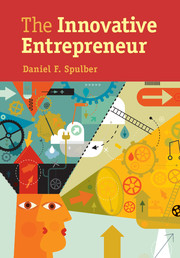Book contents
- Frontmatter
- Contents
- Preface
- Acknowledgments
- 1 Introduction
- 2 Entrepreneurial Motivation
- 3 Innovative Advantage
- 4 Competitive Pressures and Entrepreneurial Incentives to Innovate
- 5 Creative Destruction
- 6 Creative Destruction
- 7 Creative Destruction
- 8 Creative Destruction
- 9 The Wealth of Nations
- 10 Conclusion
- Bibliography
- Index
7 - Creative Destruction
Tacit Knowledge
Published online by Cambridge University Press: 05 July 2014
- Frontmatter
- Contents
- Preface
- Acknowledgments
- 1 Introduction
- 2 Entrepreneurial Motivation
- 3 Innovative Advantage
- 4 Competitive Pressures and Entrepreneurial Incentives to Innovate
- 5 Creative Destruction
- 6 Creative Destruction
- 7 Creative Destruction
- 8 Creative Destruction
- 9 The Wealth of Nations
- 10 Conclusion
- Bibliography
- Index
Summary
An inventor's tacit knowledge is a fundamental aspect of both the process of discovery and subsequent diffusion of the innovation. In a classic example, Collins (1974) examined the transfer of knowledge about the Transversely Excited Atmospheric Pressure CO2 (TEA) Laser. Collins (1974, p. 183) found that “the unit of knowledge cannot be abstracted from the ‘carrier.’ The scientist, his culture and skill are an integral part of what is known” (see also Ravetz, 1971). Collins (1974, p. 167) observed that “[a]ll types of knowledge, however pure, consist, in part, of tacit rules which may be impossible to formulate in principle.” Researchers in various laboratories experienced difficulties in developing their own working versions of the TEA laser from technical specifications and research articles. Their success in developing prototypes depended on the extent of their interaction with scientists who had tacit knowledge of the invention.
Inventors’ tacit knowledge can make it difficult to separate discoveries from the individuals who make them. Although both inventors and adopters may know that a discovery has particular features, some inventors may know how to apply their discoveries better than do potential adopters. Inventors can benefit from their tacit knowledge by becoming innovative entrepreneurs who establish firms to implement their discoveries. However, entrepreneurship entails costs of setting up new firms and rent dissipation from competing with existing firms. Alternatively, inventors can transfer their discoveries to existing firms, but this entails costs of codifying, transferring, and absorbing tacit knowledge and imperfect implementation of discoveries.
- Type
- Chapter
- Information
- The Innovative Entrepreneur , pp. 210 - 245Publisher: Cambridge University PressPrint publication year: 2014



